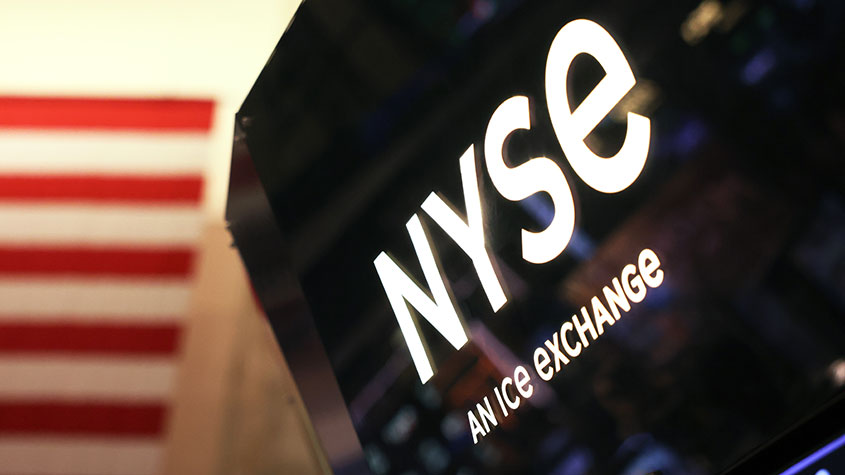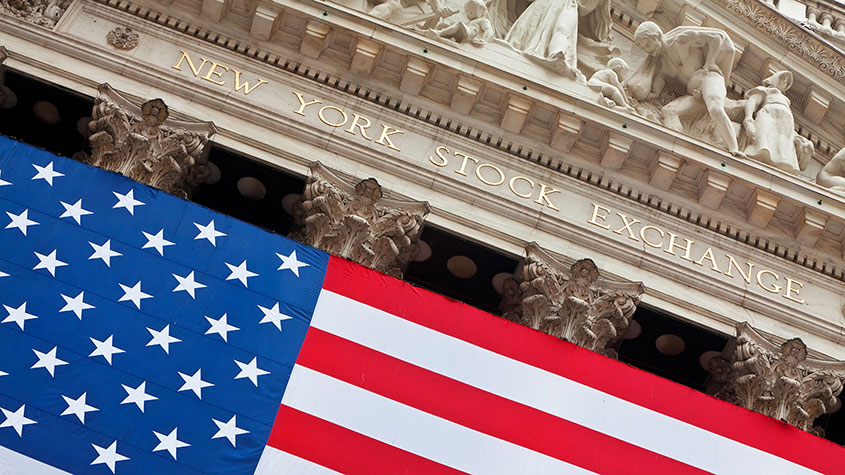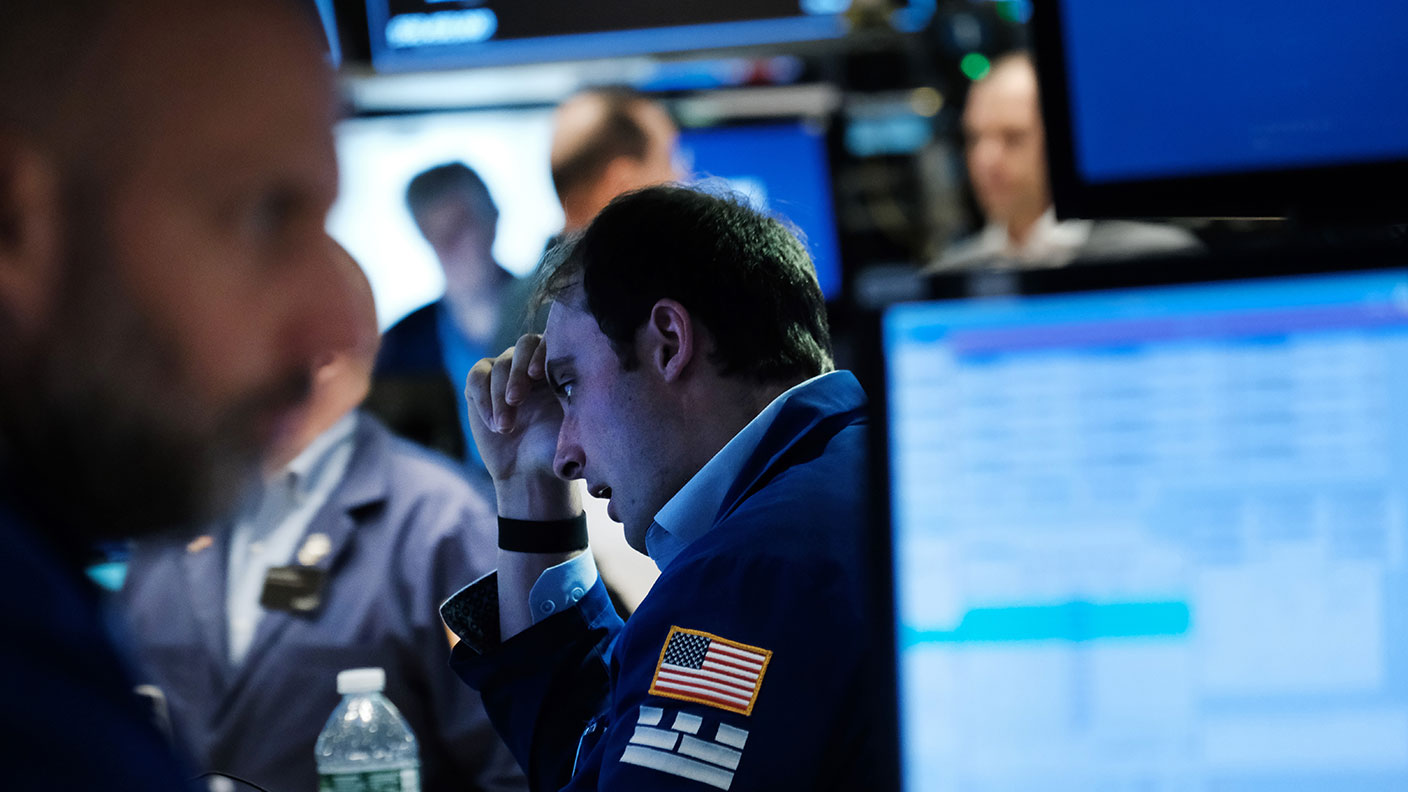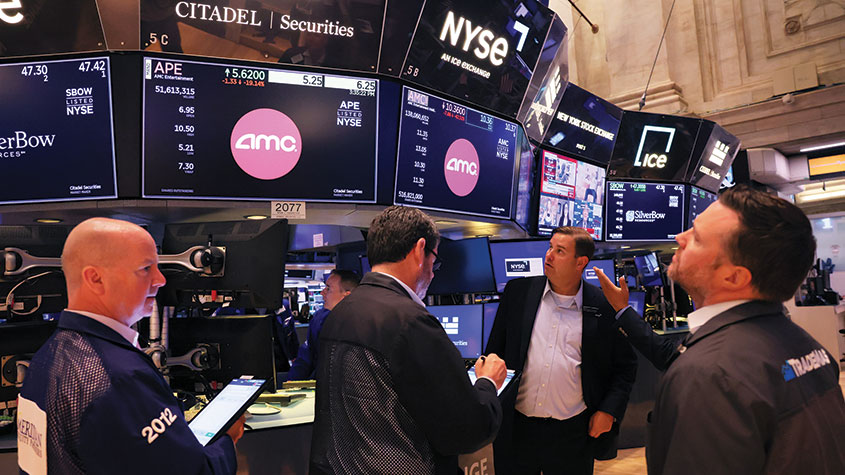The US stock market is set to fall by 70%, says Albert Edwards
Albert Edwards, Société Générale's permabear, warns investors that the end of the US government's bond buying programme will cause "a deflationary bust" that will send shares plunging.

Get the latest financial news, insights and expert analysis from our award-winning MoneyWeek team, to help you understand what really matters when it comes to your finances.
You are now subscribed
Your newsletter sign-up was successful
Want to add more newsletters?

Twice daily
MoneyWeek
Get the latest financial news, insights and expert analysis from our award-winning MoneyWeek team, to help you understand what really matters when it comes to your finances.

Four times a week
Look After My Bills
Sign up to our free money-saving newsletter, filled with the latest news and expert advice to help you find the best tips and deals for managing your bills. Start saving today!
For most pundits and policymakers the deflation vs inflation debate is over rising inflation is the bigger threat to the global economy.
But not for Socit Gnrale's 'permabear', Albert Edwards. He has warned investors that the end of the US government's bond buying programme in June (quantitative easing part II, or QE2) will cause "a deflationary bust" that will send shares plunging. So he actually advocates buying Treasury bills, as deflation - and risk aversion following the equity crash - will push up their price.
The Soc Gen strategist has form. His 1996 'Ice Age' thesis predicted that equities would enter a long-term bear market and be outperformed by government bonds. At current market levels, that call was a good one.
MoneyWeek
Subscribe to MoneyWeek today and get your first six magazine issues absolutely FREE

Sign up to Money Morning
Don't miss the latest investment and personal finances news, market analysis, plus money-saving tips with our free twice-daily newsletter
Don't miss the latest investment and personal finances news, market analysis, plus money-saving tips with our free twice-daily newsletter
Edwards admits that his bullish stance on bonds is contrarian. After all, the end of QE2 should mean that fewer people are buying bonds, which would cause the price to fall. Demand should also come under pressure from the "ruination of the public sector balance sheet".
When governments become more indebted, and therefore more risky, investors normally demand higher yields. And rising yields means falling prices. Moreover indebted governments are more likely to print more money and push up inflation.
Yet Edwards is convinced that before any of this happens we will see a deflationary bust. His logic is that "the printing presses being turned off will hit risk assets hard". That will send stock markets falling. For example he think the S&P 500 America's main index will fall by around 70%.
Yet unlike other bearish commentators Edwards believe this will actually benefit bonds. Investors faced with losses in equities will look for something safer. And that "should boost Treasuries".
Get the latest financial news, insights and expert analysis from our award-winning MoneyWeek team, to help you understand what really matters when it comes to your finances.
James graduated from Keele University with a BA (Hons) in English literature and history, and has a certificate in journalism from the NCTJ.
James has worked as a freelance journalist in various Latin American countries. He also had a spell at ITV, as well as writing for Television Business International and covering the European equity markets for the Forbes.com London bureau.
James has travelled extensively in emerging markets, reporting for international energy magazines such as Oil and Gas Investor, and institutional publications such as the Commonwealth Business Environment Report.
He founded LatAm INVESTOR, the UK's only Latin American-focused investment magazine.
He is currently the Business Editor at Compass Media.
-
 Should you buy an active ETF?
Should you buy an active ETF?ETFs are often mischaracterised as passive products, but they can be a convenient way to add active management to your portfolio
-
 Power up your pension before 5 April – easy ways to save before the tax year end
Power up your pension before 5 April – easy ways to save before the tax year endWith the end of the tax year looming, pension savers currently have a window to review and maximise what’s going into their retirement funds – we look at how
-
 The highest yielding S&P 500 Dividend Aristocrats
The highest yielding S&P 500 Dividend AristocratsTips Dividends are a key component of investment returns in the long-term. A portfolio of dividend aristocrats is a great way to build wealth and a sustainable income stream.
-
 2023 will be a bumper year for stocks. Here’s how to play the rally
2023 will be a bumper year for stocks. Here’s how to play the rallyTips Dominic Frisby explains why he thinks the market rally could have further to run in 2023 despite macroeconomic headwinds
-
 Crash? What crash?
Crash? What crash?Sponsored October is often said to be a month of stockmarket crashes. But that's not true for this year, says Max King. A host of positive triggers are lining up for equities, says Max King.
-
 The US stock market – should you put more into the S&P 500?
The US stock market – should you put more into the S&P 500?Analysis Everything went right for the US stock market in the past decade. It will be hard to repeat that as interest rates rise. We look at how attractive the S&P 500 is right now.
-
 The end of cheap money hits the markets
The end of cheap money hits the marketsNews Markets have swooned as central banks raise interest rates, leaving the era of cheap money behind.
-
 The markets say sell, but should investors listen?
The markets say sell, but should investors listen?Analysis As fear grips markets around the world, investors need to have an honest conversation about what they’re comfortable with owning.
-
 Are stocks back in a bull market or is this just a bear market rally?
Are stocks back in a bull market or is this just a bear market rally?News The S&P 500 index gained 17% between its June lows and 16 August, while the Nasdaq Composite rose more than 20%. So are stocks back in a bull market or is this just a brief rally before they resume their slide?
-
 Enjoy the bear market rally while it lasts
Enjoy the bear market rally while it lastsNews Investors seem to think that a weaker US economy will cool inflation and see the Fed relent on interest rate rises. But that optimism may be misplaced, with July’s stockmarket gains looking very much like a bear-market rally.
